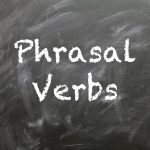Your vs. You’re This week our common mistake is with the words “YOUR” and “YOU’RE”. These two words can often be confusing. Here is an explanation to help you know when to use each one correctly. Leer más →
Etiqueta: english
English Slang, Idioms and Common Expressions
Here are the next in the series of typical English expressions. To help you improve your English-speaking skills you should learn some real English Idioms and Slang expressions. Learning and using phrases like these help you to become an “insider” and sound more like a native speaker. Leer más →
Common mistakes THEN vs. THAN
Today our common mistake is with the use of THEN and THAN. Here are a few differences between the use of the two. Leer más →

Difference between Job, Work and Career
What’s the difference between… JOB, WORK and CAREER? Here I am going to explain the difference between the three as well as giving you some collocations (typical phrases) in which you can use these words. Leer más →
Common mistakes in English Good or Well
Common Mistakes in English While practicing English, have you ever asked yourself which word you should use? Which one is correct? In this section we will look at some common mistakes. Leer más →
What’s the difference between LEND and BORROW?
NEW SECTION! Here at Stars and Stripes English we would like to present a new section we are adding to our website. It is called… What’s the difference? In this section, we will look at some of those tricky words that people question. Example the difference between LOOK, SEE & WATCH, SAY, TELL & SPEAK, etc. Today we are going… Leer más →
Collocations with COME
The Collocation for this week is COME. Below the graphic you will find the Spanish translation for them and examples. Come in first Ex: In the Boston Marathon, Peter came in first. Entrar / llegar primero Come late Ex: Yesterday, he came late to the dinner meeting. Llegar tarde Come prepared Ex: The invitation said, come prepared to have… Leer más →

Pronunciation of Regular Past Verbs
Teachers usually give a lot of emphasis on the irregular past verbs and how important they are to learn, this is true, but sometimes they forget to teach how to pronounce the regular past verbs. Not all regular verbs have the sound “–ED” but most sound like a “–T” or a “-D”. Here you have a small chart showing how… Leer más →

Those tricky silent letters!
Sometimes the pronunciation of some words of the English words can be a bit tricky due to those silent letters. Here is a small chart with some of those words. La pronunciación de algunas palabras en inglés puede ser un poco complicado a veces debido a esas letras silenciosas. Aquí tenéis una pequeña tabla con algunas de ellas. Leer más →

Phrasal verbs with UP
We are going to start a new series of Phrasal verbs by prepositions. Here you have a few phrasal verbs to start with using the preposition “UP” Sb = somebody, Sth = something Leer más →
